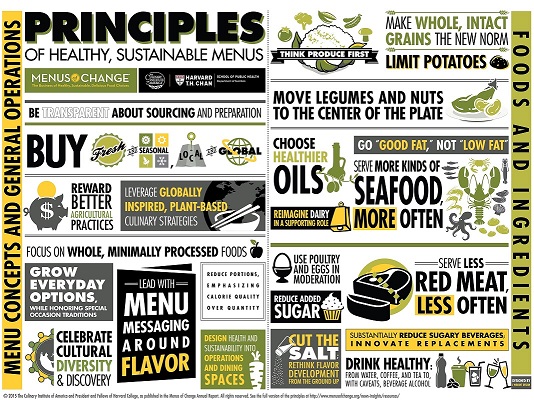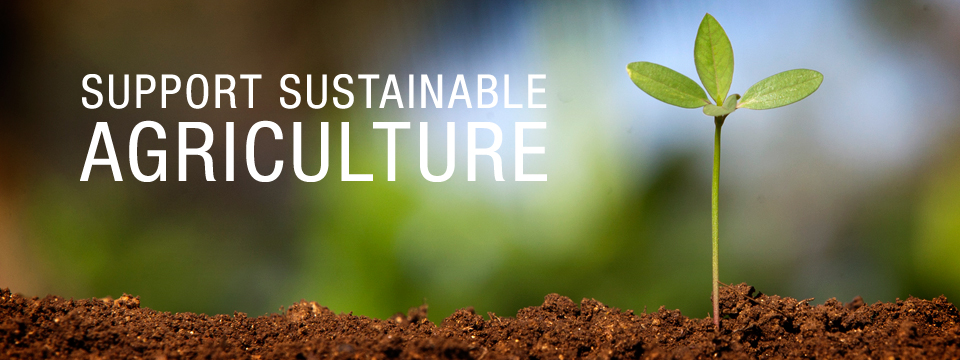Food Pages: On Earth Food Politics
Think seasonal, sustainable, local and healthy
"Eating is an agricultural act" -- Wendell Berry
(What got Michael Pollan thinking about food? / http://michaelpollan.com/articles/)
(a bit about organic ag, seeds and our seed company, Seeds of Change, before its takeover by the Mars corp)
○ ○ ○ ○ ○ ○ ○ ○ ○ ○ ○ ○ ○ ○ ○ ○ ○ ○ ○ ○ ○ ○ ○ ○ ○ ○ ○
GreenPolicy360 Food-related Categories and Pages:
Community Supported Agriculture
'Slow Food', Alternative to Fast Food
Food Saving, Reducing Food Loss
○ ○ ○ ○ ○ ○ ○ ○ ○ ○ ○ ○
Pesticides and Pest Management
Permaculture --- Permaculture Green Practices
○ ○ ○ ○ ○ ○ ○ ○ ○ ○ ○ ○
- Resources
Civil Eats - http://civileats.com/
(TW) https://twitter.com/CivilEats
○
http://www.ideafit.com/idea-food-and-nutrition-tips
https://www.ideafit.com/fitness-library/improve-our-diets-save-the-world
Weather and food costs are intertwined, as each year’s harvest is shaped by the weather and the availability of water. Cases in point are the severe droughts unfolding this year in California and Brazil. It’s also connected to a historic lack of water along with a lack of clarity on how to prioritize limited resources of water that are available, or what the foodservice industry should—or even could—be doing.
... climate change and water scarcity affect the foodservice industry today, along with strategies for managing the cost and supply of food, and protecting our water resources and businesses in the coming years.
Will Sarni, director of enterprise water strategy for Deloitte Consulting, delivered sobering projections:
- In 2025, two-thirds of the world’s population will be living in water-stressed or water-scarce areas.
- By 2025, an estimated 45% of the global GDP will be generated in water-scarce/stressed areas of the world.
"If you live in the western U.S., you know this is real and you know it’s impacting businesses, the public sector and so on," Sarni said. "There is an estimate that the drought is approximately a $3 billion hit to the state’s economy. That’s not good news—as California is the world’s seventh-largest economy, roughly, so $3 billion starts to become meaningful in the scheme of things. But this is not unique to California. California is essentially the canary in the mine highlighting some of the big issues that countries and regions are facing. We’re also seeing it in China and Brazil."
We are also depleting our water assets. We are basically mining groundwater, Sarni explained, meaning we are extracting water faster than it can be recharged. In essence we’re taking it out of the bank, which offers no buffer for any of the shocks triggered by drought or climate change.
But "hope is not a strategy, so let’s stop pawing at the drought," Sarni said. "Let’s deal with some of the structural issues that we’re facing in terms of how we manage water, price water and value water from both an economic and human perspective. The past is not a guide to the future. Things really have changed. We need to look at what the world will look like going forward."
Sarni called for more pragmatic management of water resources and adopting the concept of analyzing "virtual water," the water footprint of any product, food or otherwise, that requires water to manufacture it, import it or export it. It’s fundamental to know how much water it takes to grow something and then know where it goes, he said.
○
Menus of Change Initiative - http://www.menusofchange.org/
Solutions to today’s food-related social and environmental concerns... such as:
- Obesity, diabetes, and healthcare costs
- The sourcing and production of our food
- The challenge of feeding an additional two billion people by 2050, as global resources decline
Menus of Change: The Business of Healthy, Sustainable, Delicious Food Choices is a ground-breaking initiative from The Culinary Institute of America (CIA) and Harvard T.H. Chan School of Public Health that examines these key issues. Launched in 2012, the initiative aims to create a network of collaboration among America’s most talented chefs, nutrition and environmental scientists, farm and fisheries experts, food service executives, and policy makers.
- Alternative Agriculture
- Agriculture
- Biodiversity
- Bioneers
- Earth Law
- Earth Observations
- Earth Science
- Ecology Studies
- Environmental Full-cost Accounting
- Environmental Security, National Security
- EOS eco Operating System
- Externalities
- Farm-Related Policies
- Food
- Food-Related Policies
- Green Politics
- Land Ethic
- Natural Capital
- Organic Food
- Permaculture
- Planet Citizen
- Sustainability
- Sustainability Policies
- Urban Gardening
- Water


